Events
A Meeting of Lithuanian and Ukrainian Psychotraumatologists
04 12 2024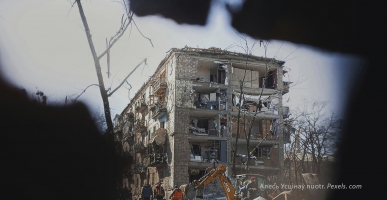
The conference "Psychology and the War in Ukraine" took place at the Lithuanian Academy of Sciences on 29 November 2024. It was attended by Prof. Evaldas Kazlauskas, a member of the Lithuanian Academy of Sciences, Assoc. Prof. Dr Paulina Želvienė, a member of the Young Academy, and guests from Ukraine: Dr Iryna Frankova and Assoc. Prof. Dr Oxana Bayer. The participants were welcomed by Prof. Jūras Banys, President of the Lithuanian Academy of Sciences, and Prof. Evaldas Kazlauskas, head of the Centre for Psychotraumatology of Vilnius University. Four papers were given at the conference.
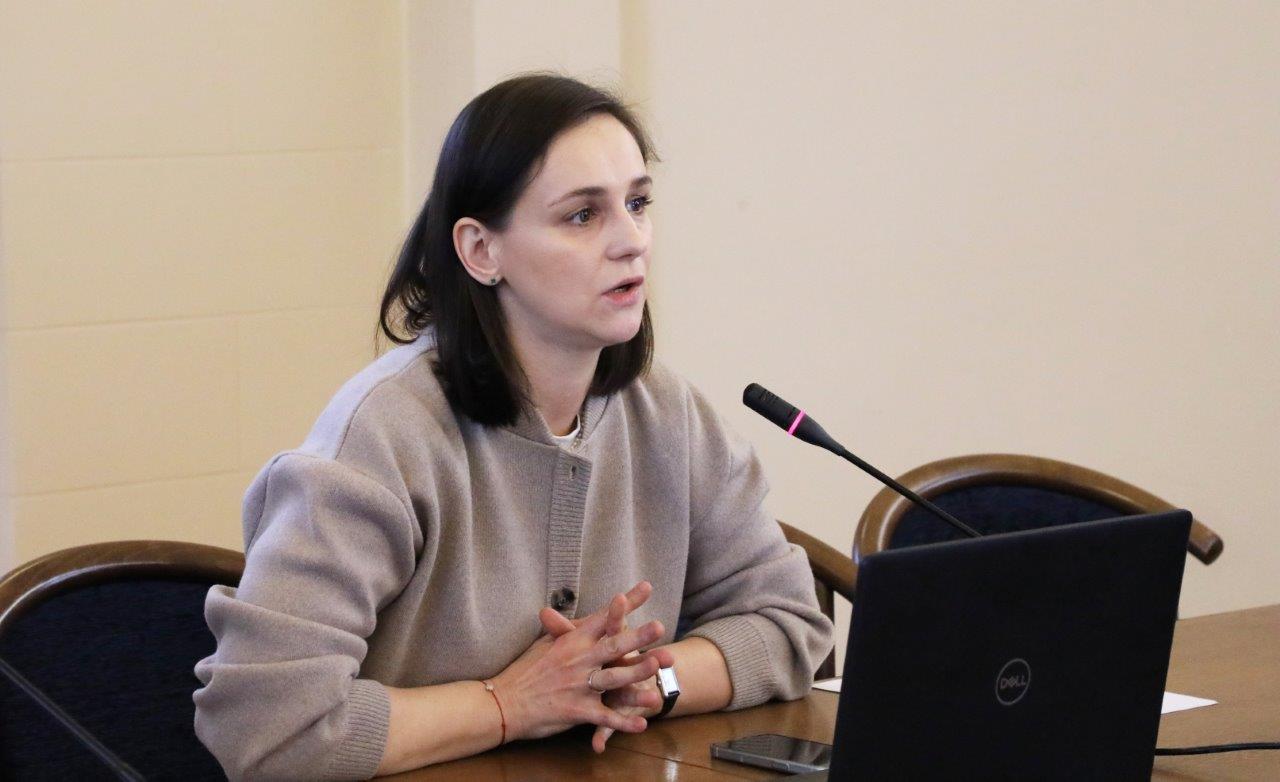
Assoc. Prof. Dr Paulina Želvienė.
Assoc. Prof. Dr Paulina Želvienė of the Centre for Psychotraumatology, Vilnius University, spoke about psychotraumatology in Lithuania, active involvement in the work of the international psychotraumatology community, and assistance to Ukraine. Academician Evaldas Kazlauskas presented his paper ‘Application of Psychotraumatology Research in Providing Psychological Assistance’. One thing is to understand people’s responses to various traumatic events, and another, equally important aspect, is application of research results in developing psycho-social services and provision of assistance to the individuals suffering from traumas. The academician discussed the challenges in developing methods of recognition of the traumatic stress and psychotraumatological evaluation and their benefits to society. Many people experience various negative life events. The resources are limited, and it is impossible to help everyone. How to recognise the individuals who suffer the most? Various diagnostic evaluation tools are developed for this purpose. Another direction of psychotraumatology is searching for the ways of assistance through the use of advanced information technologies.
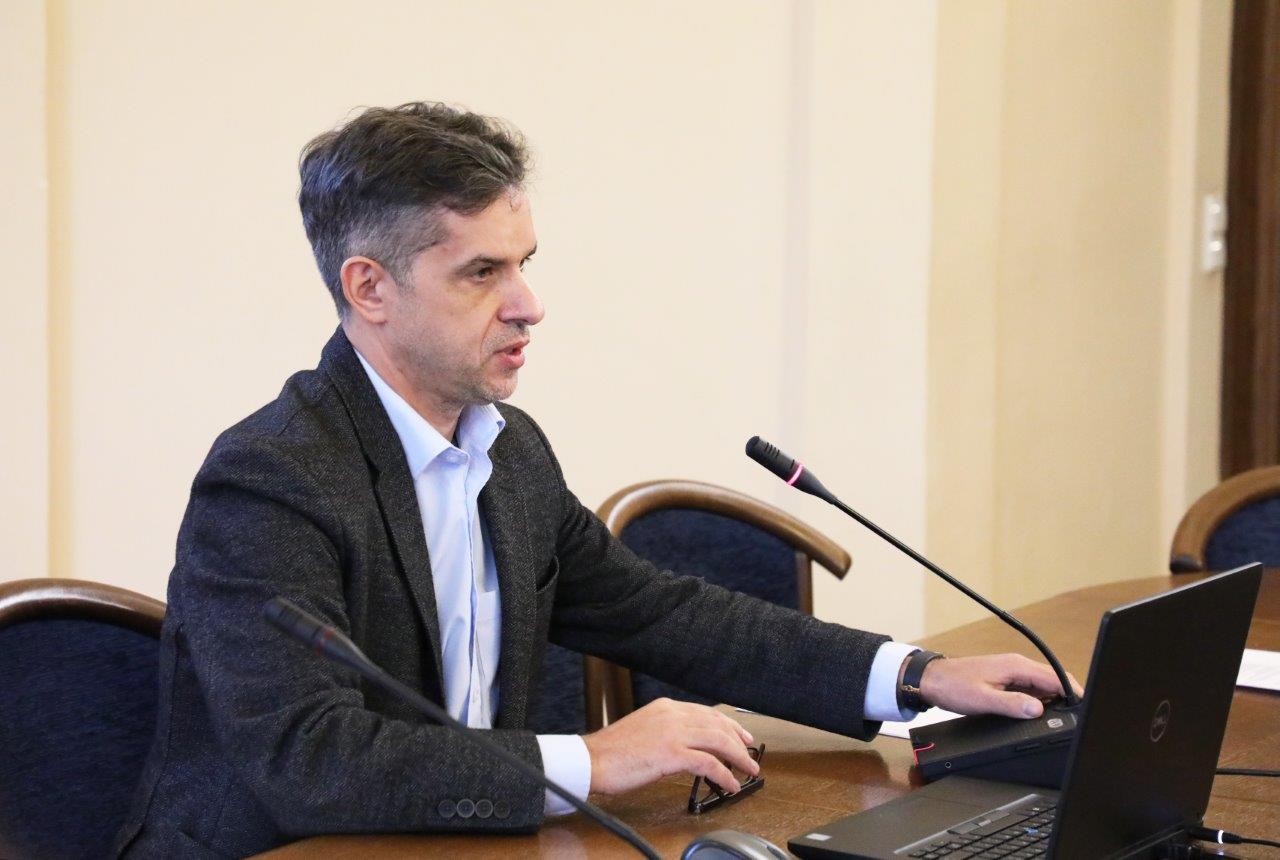
Prof. Evaldas Kazlauskas.
Prof. Kazlauskas said that ‘traditional assistance, when a person meets a psychologist, is important but no longer sufficient. In the case of the war in Ukraine, research shows that around 20 per cent of people may be suffering from an extremely strong traumatic stress. For this reason, we must search for new ways to help. One of these ways is application of advanced technologies, when a certain structural program is developed to be used by the patients, even remotely, when the involvement of psychologists is minimal’. Informing the public about the impact of traumatic experiences on mental health, specialist training on how to provide psychological health, and development of new health services were presented as important ways of dealing with difficulties arising from traumatic experiences.
Dr Iryna Frankova from the Free University (Vrije Universiteit) Amsterdam spoke about psycho-social interventions intended for improving mental health of the people who had left Ukraine for the countries of the European Union. Due to Russia’s full-scale war against Ukraine, the demand for psychological help has escalated, and that is why new innovative solutions are sought to reduce the psychological trauma and to rein in stress. Dr Frankova presented the experience of the large ‘U-Rise’ project – specialised programmes for people experiencing severe psychological distress. Psychologists and volunteers in Poland, Romania, and Slovakia were trained in the use of the specialised digital applications SH+ and PM+ and in the development of the competences necessary to provide assistance. These techniques reduce stress and help people react appropriately to highly stressful situations. Through innovative methods of assistance, around 150,000 people who left Ukraine for the countries of the European Union received psychological support as a result of this project.
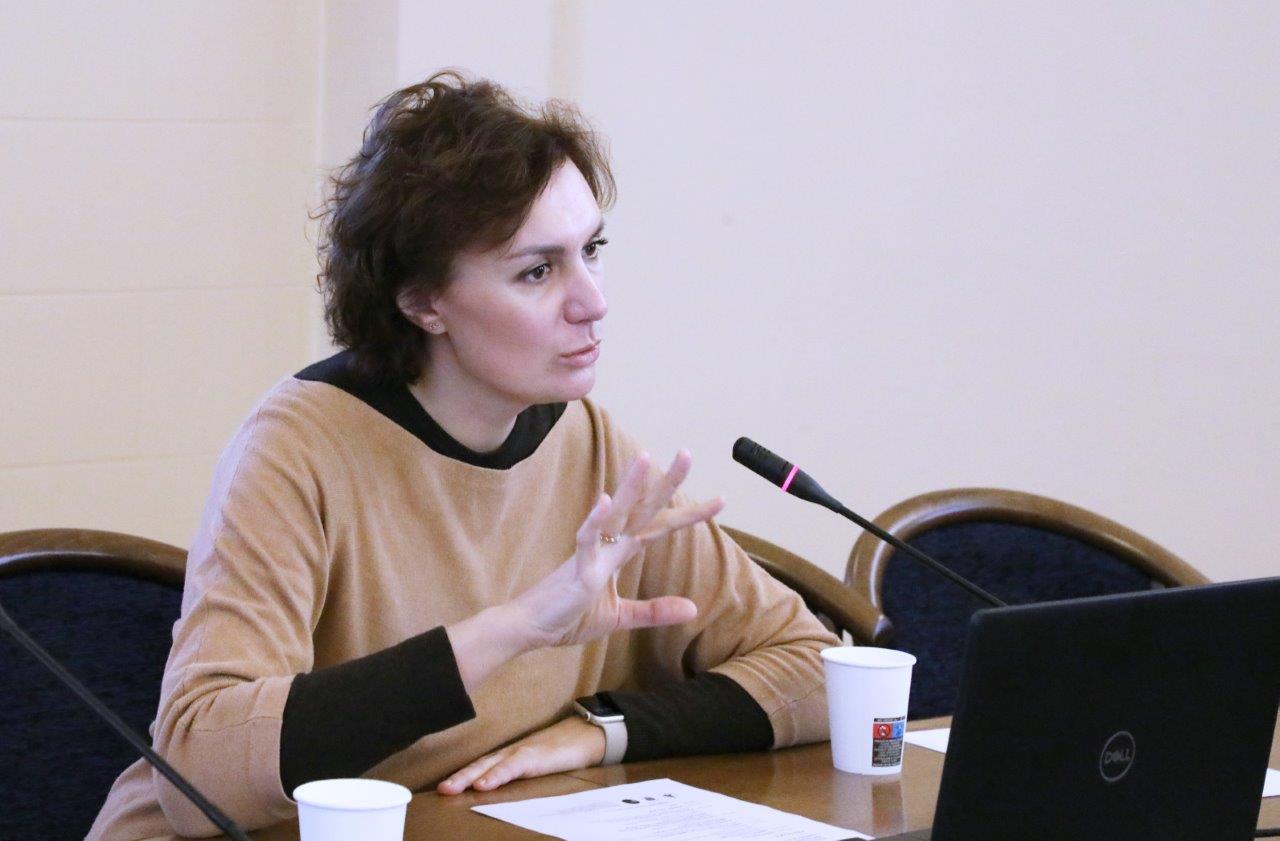
Dr Oxana Bayer.
The closing paper of the conference, ‘Psychological Research during the War in Ukraine’, was given by Dr Oxana Bayer from Alfred Nobel University (Dnipro, Ukraine). Her research interests include trauma and identity studies and the long-term consequences of Soviet rule in Ukraine. She began her presentation by outlining the research being carried out in Ukraine in the wake of Russia's large-scale invasion of Ukraine in 2022. These studies have been published in Ukrainian. Her study on the experiences of ethnically mixed Ukrainian-Russian families during the Russian invasion of Ukraine from the perspective of the female partners has attracted considerable interest. The war has a strong emotional impact on families and couples, especially when the partner ethnically identified as Russian before the war. Initial qualitative research results were obtained with 16 Ukrainian or Russian women from Ukraine, who were in mixed Ukrainian-Russian relationships at the time of research. In personal interviews, they talked about the pain of a possible family break-up, the tension between ethnic and political loyalties within the family, and the feelings of guilt and shame experienced by women of Russian origin. For instance, ethnic Russian women felt they had no moral right to feel dissatisfied, although they were willing to openly share their doubts and concerns with their Ukrainian partners. They therefore avoided the subject of the war in their formal conversations, or they had to break off contacts with relatives living in the Russian Federation.
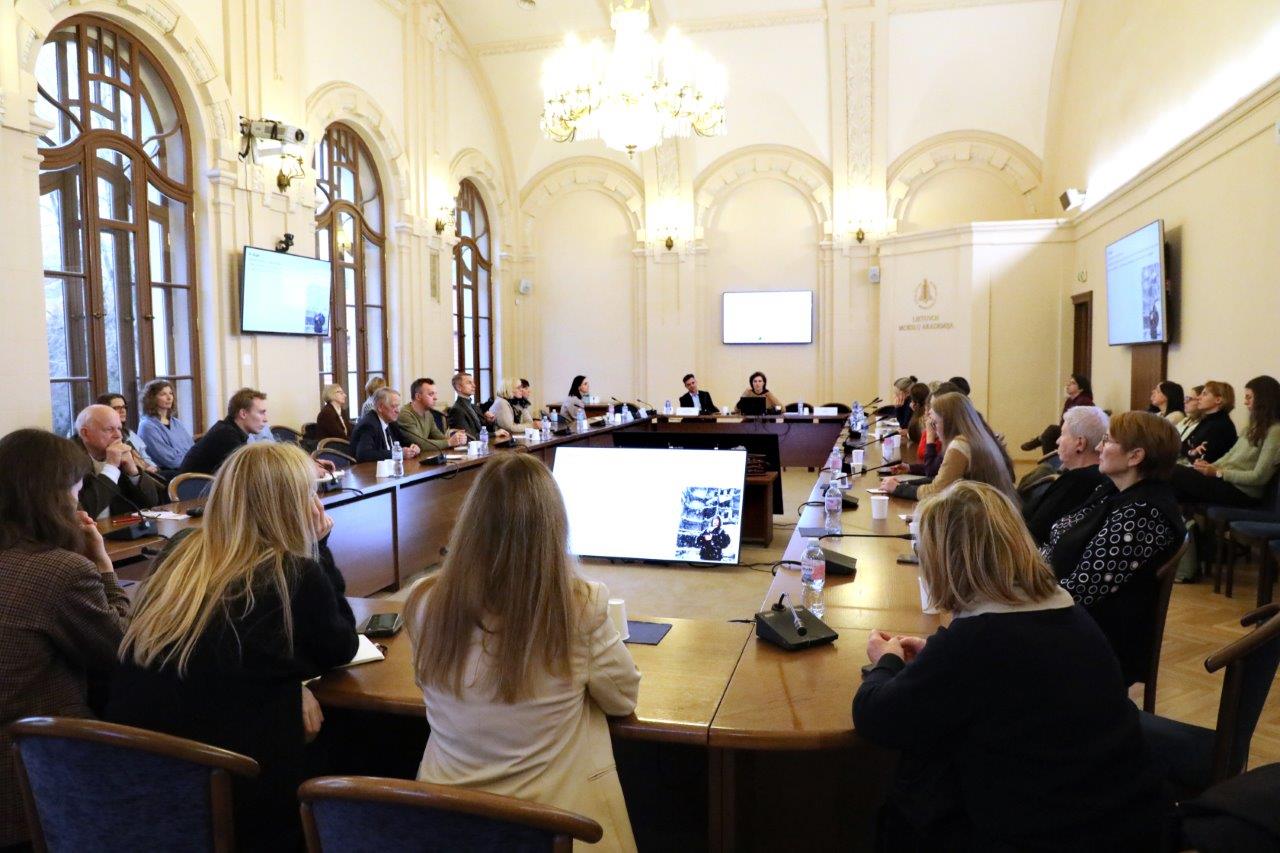
Participants of the event.
A discussion at the end of the conference explored opportunities for joint research and sharing experiences. Prof. Kazlauskas, who chaired the conference, pointed out that the experience of Ukrainian psychological scientists is of great value to Lithuanian researchers and practitioners of psychology in the development of research and knowledge in psychotraumatology, which is highly relevant for Lithuanian psychology.
Prepared by Dr Rolandas Maskoliūnas, Chief Specialist for Public Relations
Translated by Diana Barnard
Photography Virginija Valuckienė
PHOTO GALLERY
